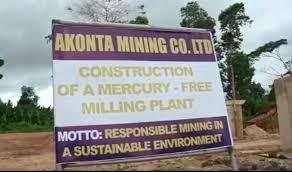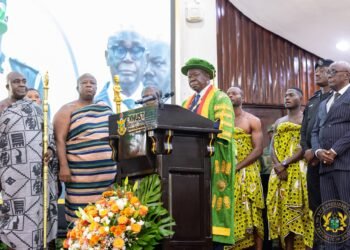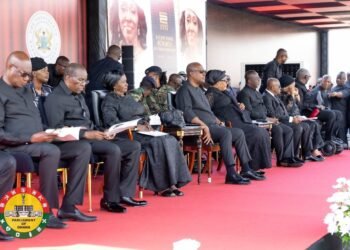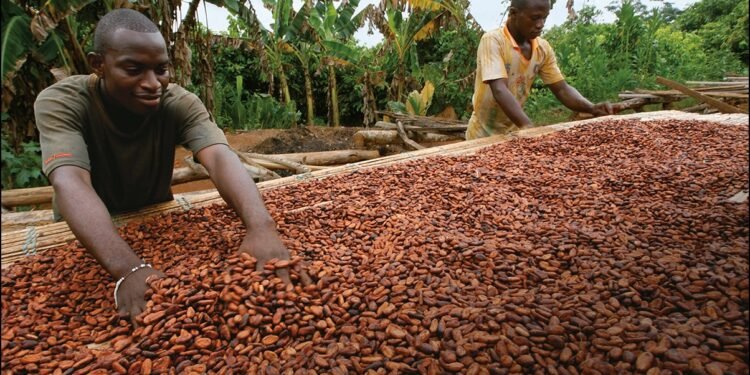Akonta Mining Limited has firmly denied allegations of illegal mining within the Tano Nimiri Forest Reserve, responding strongly to the recent revocation of its license by Ghana’s Minister for Lands and Natural Resources, Emmanuel Armah-Kofi Buah.
In its official statement, the company described the accusations as “false and misleading” and branded the revocation as a “breach of natural justice.”
This public rebuttal comes at a time when the country is grappling with the growing menace of illegal mining, popularly known as galamsey, which continues to wreak havoc on forest reserves and water bodies.
Yet, while public concern intensifies, Akonta Mining has stepped forward to distance itself from the illegal operations linked to it.
“We are not responsible for the activities in the Tano Nimiri Forest Reserve. That responsibility lies solely with the Forestry Commission and the Ministry of Lands and Natural Resources.”
Akonta Mining Limited
This bold claim shifts the spotlight away from the company and back onto state institutions, sparking questions about regulatory oversight and political scapegoating.
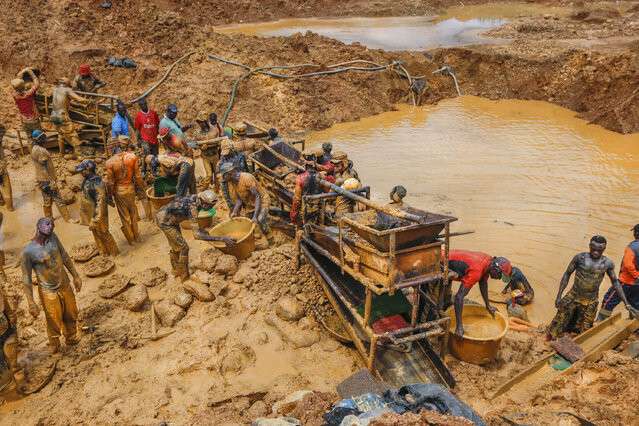
According to Akonta Mining, the company has never even received permission to access the forest in question. “It is deeply concerning that state institutions are shifting blame onto a private company that has never been granted access to the said forest area.”
The company further described the Minister’s decision to revoke its license as premature and unjust.
“The decision by the Minister to publicly accuse us and call for the revocation of our license without any investigation or hearing is not just unfair — it is a clear breach of natural justice and a politically motivated act.”
Akonta Mining Limited
Illegal Mining And Politics
Behind the dust of legal back-and-forth lies the name Bernard Antwi Boasiako — better known as Chairman Wontumi — a high-profile political figure and owner of Akonta Mining.
As Ashanti Regional Chairman of the ruling New Patriotic Party (NPP), his involvement lends the issue a political edge that can’t be ignored.
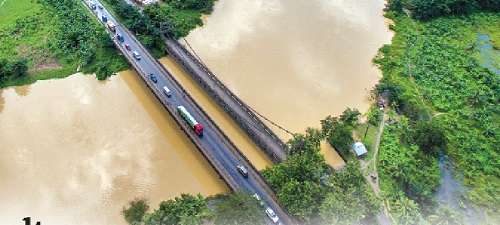
Whether this situation is a sincere crackdown on illegal mining or a calculated political maneuver now becomes part of the wider public discourse.
Meanwhile, at a press briefing on Monday, April 21, 2025, Minister Armah-Kofi Buah directly accused Akonta Mining of operating without the necessary permits within forest reserves.
The Minister noted that while the company holds a valid mining license for operations outside forest reserves, it had unlawfully extended its activities into the Aboi and Tano Nimiri Forest Reserves in the Western North Region.
The Minister’s accusations appear damning on the surface, but Akonta Mining insisted there was no due process before these public statements were made.
The company maintained that it has complied with all legal requirements and remains fully transparent.
“We wish to assure the Ghanaian public that Akonta Mining has nothing to hide. We remain committed to transparency, legal compliance, and environmental responsibility. All our documents, permits, and official correspondences are available for public scrutiny.”
Akonta Mining Limited
This assertion strikes a chord, especially given the ongoing frustration among citizens regarding the selective enforcement of mining regulations.
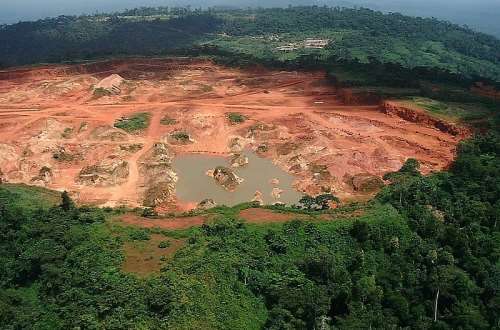
With the spotlight now on Akonta, the debate deepens: Is this truly about illegal mining, or is the company being made an example in an attempt to show political will?
Critics argue that without a clear and impartial investigation, any punitive action taken may set a dangerous precedent where politically affiliated companies are judged in the court of public opinion rather than by facts.
The call for justice must cut both ways — both for companies that violate environmental laws and for institutions that act without due process.
The Ministry of Lands and Natural Resources, as well as the Forestry Commission, must now respond not just to the allegations against Akonta Mining but to the broader question of regulatory consistency.
If Akonta’s claims hold water, then the integrity of institutional processes will be under scrutiny just as much as the activities of the mining firm.
As the dust settles, one thing is clear: the conversation around illegal mining in Ghana is far from over.
With powerful actors, political undertones, and environmental concerns in the mix, Ghanaians must demand not only accountability but transparency — from both companies and the government institutions charged with oversight.
In the coming weeks, the public will be watching. Not just to see if Akonta Mining’s name is cleared or condemned, but whether this moment becomes a turning point in the battle against illegal mining or just another footnote in Ghana’s long struggle with environmental governance and political influence.
READ ALSO: Recent Auction Undersubscription Signals Market Caution, Not Panic- Analyst

